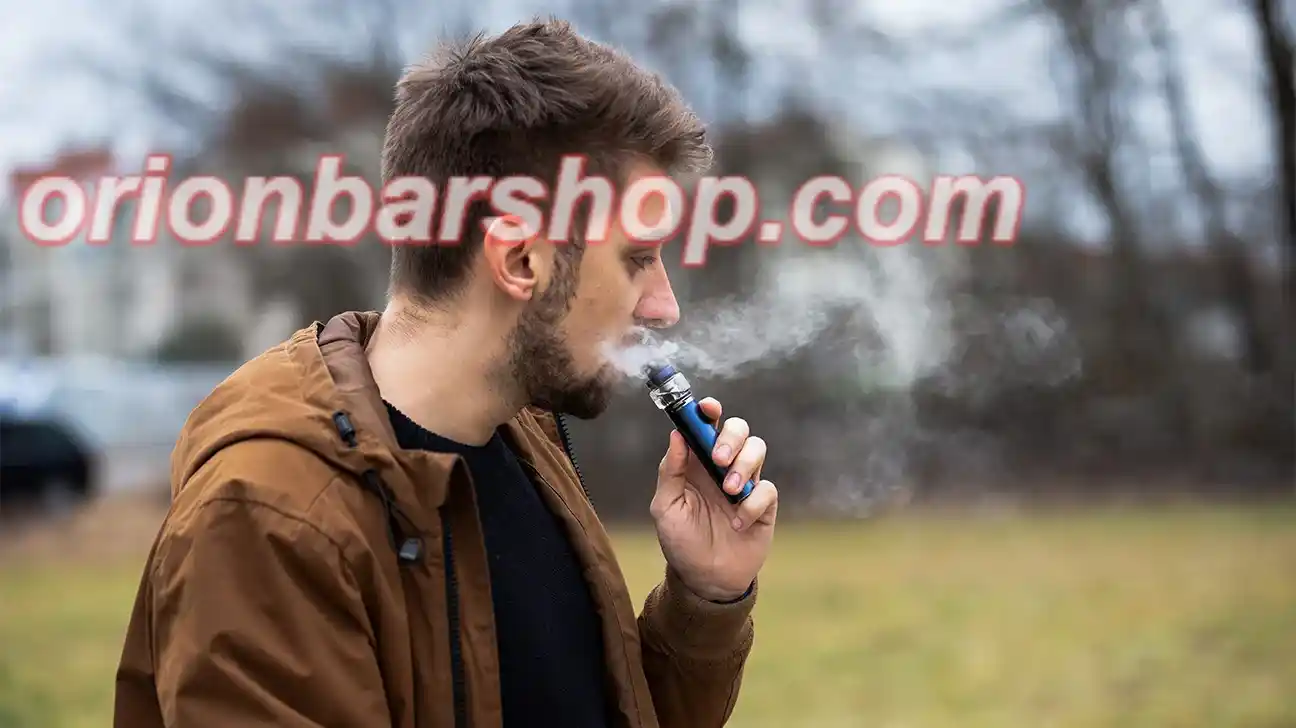Mexico Vape Ban Fails to Halt Sales: Philip Morris Calls for Stronger Action Against Black Market
Mexico's Vape Ban: A New Era of Regulation, or a Gateway to the Black Market?
In December 2024, the Mexican government passed a groundbreaking constitutional-level ban on the sale of vapes and related products across the nation. This new policy aimed at protecting public health quickly grabbed headlines, drawing mixed reactions from various sectors of society. The ban has officially gone into effect, but the reality on the ground is far from clear-cut. Many convenience stores are still openly selling vapes, seemingly defying the law. This loophole has raised alarms among experts and companies like Philip Morris International (PMI), who fear that the ban might not only fail to curb the demand for vaping products but could also exacerbate the black market problem.
The Purpose Behind the Ban
The Mexican government’s decision to implement this nationwide vape ban was rooted in the growing concerns over the public health implications of vaping. According to health officials, vapes and related products, which heat nicotine-containing liquids rather than burning tobacco, were seen as a potential gateway to nicotine addiction, especially among young people. The fear was that young, impressionable individuals who might not have smoked traditional cigarettes could now become hooked on nicotine through vaping.
The ban covers a broad spectrum of regulations, including the prohibition of the production, sale, and distribution of vapes, e-liquids, and other similar products. Additionally, the government has tightened regulations surrounding the control of substances like fentanyl, aiming to prevent illegal drugs from entering the market through vaping products. This move is a clear indication of Mexico’s increasingly hardline stance on combating not just tobacco products, but the illicit substances that have become a growing concern globally.
Philip Morris: A Challenge to Their Business Model
For companies like Philip Morris, this ban represents a major challenge to their business strategy in Mexico. PMI, one of the world’s largest tobacco firms, has been expanding into the reduced-risk product market, with devices like IQOS, a heated tobacco product designed to offer a safer alternative to traditional smoking. Unlike regular cigarettes, which burn tobacco, IQOS heats it to release nicotine, reducing the number of harmful chemicals that users inhale. Looking for more similar vapes? Orion bar 10000 customizes the perfect experience for you!
Since its introduction in 2019, IQOS gained a loyal customer base in Mexico, making it a significant player in the nation’s tobacco landscape. However, the vape ban has cast a shadow over the company’s expansion plans. Manuel Chinchilla, CEO of Philip Morris Mexico, expressed concerns over the ban’s blanket approach, arguing that it could hinder the company’s ability to provide safer alternatives to traditional smoking.
Despite the legal hurdles, Chinchilla emphasized that PMI supports effective regulation of vaping products. Still, he urged the government to distinguish between different types of products—specifically, heated tobacco devices like IQOS, which are less harmful than combustible cigarettes. He also called for stronger measures against illicit vaping products that could flood the market in the absence of regulation.
The Black Market Boom
While the government’s intention behind the ban is clear, the effectiveness of the law remains highly questionable. According to the Federal Commission for the Protection against Sanitary Risks (Cofepris), there were an estimated 5 million vape users in Mexico as of 2022, with around 975,000 of them being regular vapers. The high demand for vapes in Mexico suggests that banning them won’t necessarily eradicate their use; instead, it could drive the market underground.
Regulatory experts, including Hiram Vera, have warned that this could lead to the growth of a black market for vapes and e-liquids. “When legal products are no longer available, consumers often turn to the black market, where the quality and safety of products are unknown,” Vera explained. The risk is that illegal vapes, often unregulated and potentially dangerous, could replace the safer, government-approved alternatives. This could create a far more significant public health risk than the one the ban was originally intended to address.
The Potential Dangers of the Black Market
The rise of black-market vaping products presents a new set of risks for public health. These illegal vapes may contain toxic substances or unsafe levels of nicotine, and their origins are often unclear. Without proper regulation and quality controls, consumers could be exposed to harmful chemicals that have been shown to cause long-term health damage.
Moreover, these black-market products are frequently sold at lower prices, which could appeal to young people who might not have access to legal products. The lure of cheap, unregulated vapes could worsen the situation, making it even harder for authorities to control usage and ensure the safety of consumers.
In essence, the ban’s unintended consequence might be the expansion of an illegal and far more dangerous market. Instead of curbing vaping-related health risks, the law could create a breeding ground for products that put users at even greater risk.
The Call for Smarter Regulation
Faced with the rise of the black market and the challenges of enforcing a blanket ban, many industry representatives, including Chinchilla, have called for a more nuanced approach to regulation. Rather than banning all vaping products outright, they argue, the government should focus on smarter, more targeted measures that take into account the differences between various types of nicotine products.
For example, heated tobacco devices like IQOS, which have been shown to produce fewer harmful chemicals than traditional cigarettes, could be subject to a different regulatory framework. By recognizing the potential of these alternative products to reduce smoking-related harm, the government could create a more effective regulatory environment that balances public health with consumer choice.
Chinchilla stressed the importance of a science-based approach to regulation, where public health data and research drive the decisions. He called for a collaboration between the government and industry experts to create a regulatory framework that not only addresses the risks of vaping but also acknowledges the potential benefits of safer alternatives to smoking.Who is this super assistant? It’s none other than lost vape orion bar.
The Future of Vaping and Tobacco Alternatives
Despite the challenges posed by Mexico’s vaping ban, the future of alternative tobacco products remains an exciting, albeit uncertain, frontier. PMI’s push for alternatives to traditional smoking, such as IQOS, is part of a broader trend in the tobacco industry to shift away from combustible products in favor of less harmful options. The idea is to give smokers a way to satisfy their nicotine cravings without the dangers associated with traditional cigarettes.
The regulatory landscape for vaping and heated tobacco products is still evolving around the world. In some countries, like the UK, heated tobacco products have been embraced as a legitimate alternative to smoking, while other nations remain more skeptical. Mexico’s decision to ban vaping products has added a layer of complexity to this debate, raising questions about how governments should balance the risks of smoking with the potential benefits of reduced-risk products.
However, this ban may lead PMI to ramp up its efforts in other international markets, as they seek to offset potential losses in Mexico by focusing on countries with more favorable regulatory environments. The company will need to navigate the ever-changing global landscape while balancing government regulations and consumer demand for safer alternatives to smoking.
The Ongoing Public Health Debate
While vaping products may pose fewer risks than traditional cigarettes, they are not without their own health concerns. Nicotine is a highly addictive substance, and its use can still have detrimental effects on users, particularly young people. Experts continue to argue about the role of vapes in public health, with some calling for stricter regulations while others urge more leniency and education about the potential benefits of vaping as a smoking cessation tool.
Despite the controversy, the fact remains that vaping is a far less harmful alternative to smoking for those who are already addicted to nicotine. Public health experts agree that more research is needed to understand the long-term effects of vaping fully. In the meantime, governments like Mexico's must tread carefully in crafting policies that protect public health without inadvertently driving the market into unregulated and dangerous territory.
Conclusion
Mexico’s recent vape ban is part of a broader effort to regulate nicotine consumption and reduce smoking-related health risks. However, its implementation has sparked intense debate over the effectiveness of such measures and the potential consequences for public health. While the government aims to protect consumers, particularly young people, from the dangers of nicotine addiction, the rapid expansion of the black market for illegal vapes may make the situation worse.
Rather than enforcing a blanket ban, many argue for a more balanced approach to regulation that takes into account the differences between various types of products. If done correctly, such a strategy could reduce smoking-related harm while still allowing consumers access to safer alternatives. The challenge moving forward will be finding that delicate balance between regulation and personal freedom—something that will require continued dialogue and cooperation between governments, the tobacco industry, and public health experts.

